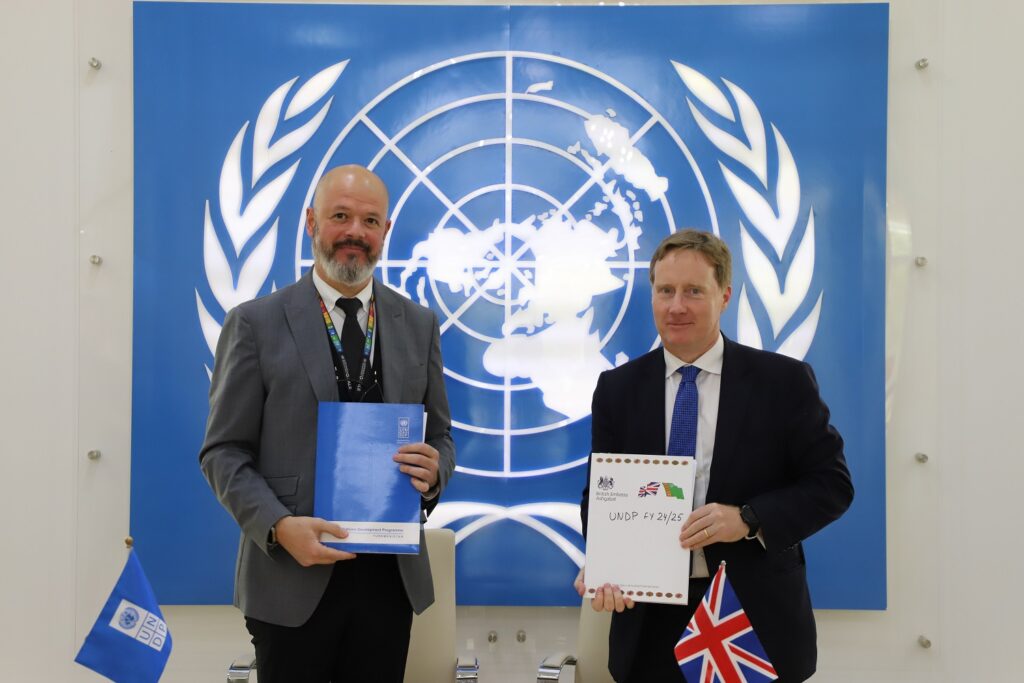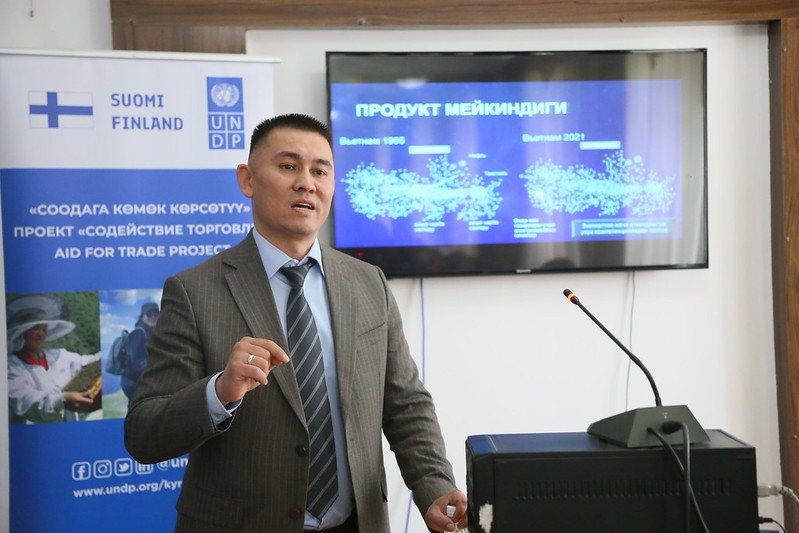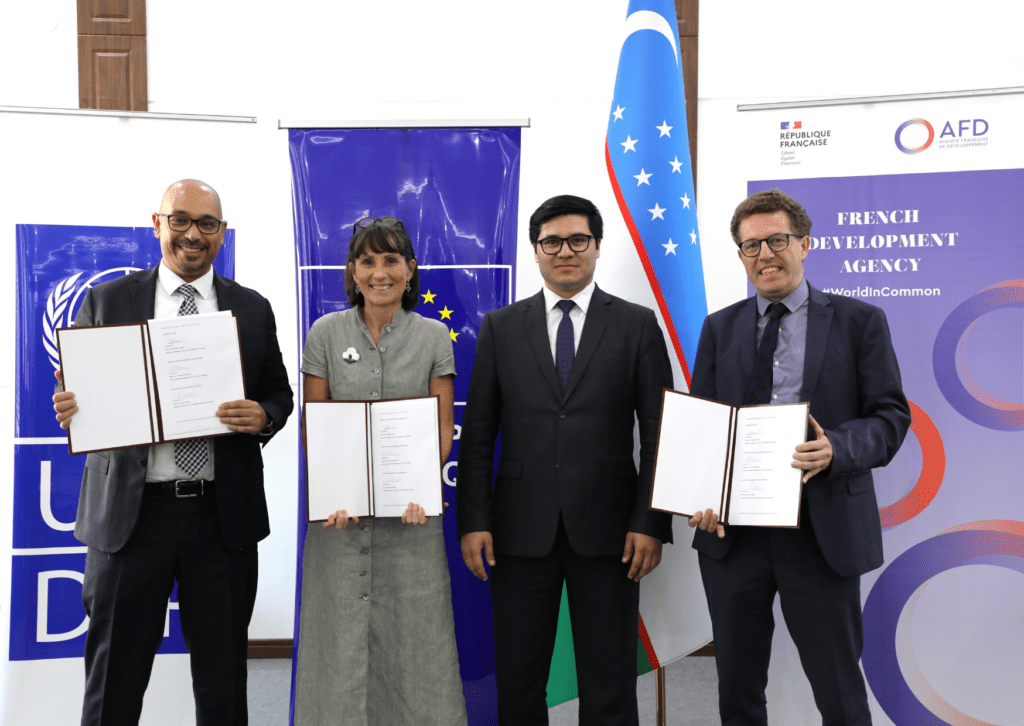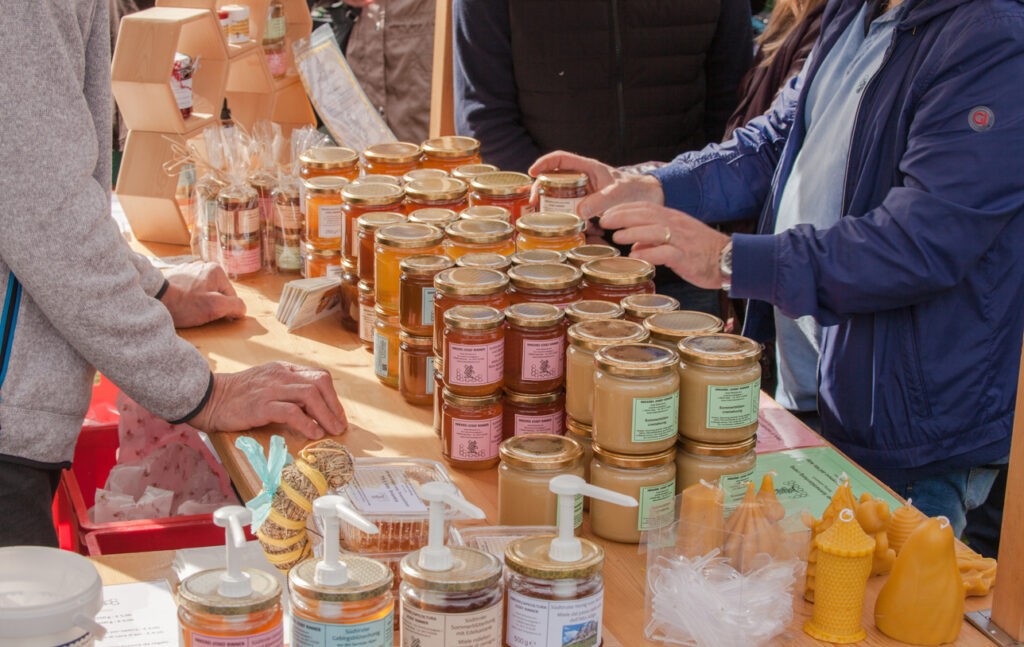Viewing results 1 - 6 of 5
The United Nations Development Programme (UNDP) and the British Embassy in Turkmenistan have signed a Contribution Agreement in support of “Increasing the Capacity of the Boards of Lawyers in Turkmenistan.” The initiative to be implemented jointly by the UNDP and Boards of Lawyers in Turkmenistan, aims to enhance the latter’s capacity to provide legal aid in accordance with international standards including: UN Principles and Guidelines on Access to Legal Aid in Criminal Justice Systems, Basic Principles Concerning the Role of Lawyers, and Standards of Independence of the Legal Community adopted by the International Bar Association. The project will also assist the Boards of Lawyers in the establishment of a National Chamber of Lawyers in Turkmenistan. The new body will represent and safeguard the interests of lawyers, coordinate the Boards of Lawyers’ activities in Ashgabat and across the country’s regions, ensure high-quality legal assistance, and address issues which impact the legal community's interests. UNDP will also assist in digitizing the Boards of Lawyers' operations in Turkmenistan.
The United Nations Development Program (UNDP) in Turkmenistan, in partnership with the UNDP Knowledge Project, is joining the global FutureSkills4All initiative to increase employment opportunities for women and young people in the country. According to Turkmenportal, this initiative will involve at least 660 people from Turkmenistan. They will have access to the cutting-edge online learning platform Coursera, where they will be able to complete various training programs to acquire in-demand professional skills. In addition to accessing online courses, learners will also receive guidance and mentoring from local experts, to help them acquire interpersonal skills, such as resilience.
A much welcomed export development and promotion center has been launched in Kyrgyzstan with support from the United Nations Development Programme (UNDP). According to a report by the UNDP in Kyrgyzstan on May 7, the key aim of the Kyrgyz Export Center is to offer advice and equip Kyrgyz companies with skills and knowledge to navigate and succeed in international trade. Local businesses are promised access to a wide range of beneficial services including the provision of data and analysis of potential international markets and step-by-step guidance in entering foreign markets. Help will also be available to enable companies to fully exploit their export potential through programs tailored to maximize growth and competitiveness. In addition, local companies will be encouraged and offered support to participate in trade missions and international exhibitions through which they can showcase their products to a global audience. Emphasizing the organization’s commitment to best international practices, Urmat Takirov, director of the Kyrgyz Export Center, stated, “We strive to apply the best practices and approaches adopted in international business to ensure the best results in the development of export-oriented companies in Kyrgyzstan.”
An agreement on financing a new project in support of green development in Uzbekistan was signed on May 6 by representatives of the French Development Agency (AFD), the European Union, and the United Nations Development Program (UNDP). According to the UNDP's press service, the project aims to assist the Uzbek government in financing green development across the country through the effective use of public finance, integrating green priorities into the budgeting process (green budgeting), and introducing innovative financial instruments to attract investments in green projects. The Ministry of Economy and Finance is expected to act as the cabinet-level partner in this project. Under the agreement, grant funds in the amount of €600,000 provided by the EU will be directed by AFD and the UNDP to provide technical assistance to the government under the project "Supporting Green Development Financing in Uzbekistan" for the period 2024-2026. The new project will build on the results and achievements of the previous joint initiative by AFD and the UNDP to introduce budgeting methodologies and practices based on the Sustainable Development Goals (SDGs), which were successfully implemented in 2022-2023. At that time, the Ministry of Economy and Finance was supported in designing and developing methodologies based on international best practices, conducting research and capacity building of national partners in the field of SDGs and green budgeting. Key results of that project included climate budget labeling -- implemented for the first time in Uzbekistan -- and the presentation of its results in the "Budget for Citizens" publication.
The United Nations Development Program (UNDP) in Kyrgyzstan, in cooperation with the Training and Advisory Services Center (TES-Center) Foundation, is launching an initiative to strengthen the value chain of natural honey for export, according to a report on the official UNDP website. The project will be funded by the Government of Finland and implemented in the Osh, Naryn, and Issyk-Kul regions. The authors of the initiative believe that Kyrgyzstan has significant potential for the production and export of honey. However, this requires a coordinated effort. "We support beekeepers in increasing their productivity and competitiveness of their natural honey, taking into account the introduction of innovative and resource-efficient green technologies, which will stimulate [sustainable] exports and the creation of new green jobs. The program is also aimed at integrating small farmers into the process of value addition," said Aisuluu Mambetkazieva, the UNDP Trade Facilitation Project Coordinator. The project will support beekeepers and their apiaries, exporters, service operators, and the local authorities. Special attention will be paid to the inclusion of women and people with disabilities, as well as environmental sustainability in the sector. The project is expected to generate at least 120 jobs, including those for women, in rural areas. The project will also provide capacity building for honey processing and export enterprises. Participants will be trained in the use of online marketplaces and e-commerce platforms.







